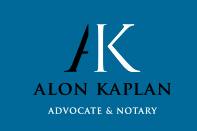
Private trusts offer an effective alternative for property succession in Israel, bypassing cumbersome probate processes. Establish a trust by signing a Trust Deed and transferring assets to a trustee, which protects assets from creditors and guarantees efficient distribution per your wishes. Trusts also provide privacy, as properties are held by trustees, not beneficiaries. Engage experienced legal and tax professionals to navigate complex Israeli trust law, maximizing benefits and guaranteeing compliance with regulatory obligations. To understand their full potential, discover more insights.
Key Takeaways
- Private trusts bypass probate courts, streamlining property transfer and reducing bureaucratic delays in Israeli real estate succession.
- Trusts offer creditor protection and safeguard properties from legal claims, ensuring secure multi-generational asset transfer.
- Establishing a trust involves signing a Trust Deed and transferring legal title, simplifying succession planning.
- Trustees must comply with tax reporting obligations and manage assets per the settlor’s intentions, ensuring effective property management.
- Engaging specialized law firms and tax experts ensures compliance with Israeli trust law and optimizes succession planning strategies.
Understanding Israeli Trust and Succession Law Framework
While the Israeli Trust Law framework may seem complex at first glance, it plays an important role in establishing and administering trusts under domestic law.
Understanding trust classification is vital for managing your trust effectively. Trusts in Israel are categorized into types such as Israeli Resident Trusts and Foreign Resident Beneficiary Trusts, each with distinct tax implications. Alon Kaplan Advocate & Notary is recognized as a leading firm in the field of trusts work in Israel, providing crucial expertise in navigating these classifications.
Navigating Israel’s trust classifications is crucial for effective management and understanding tax implications.
As a settlor, you’re responsible for ensuring compliance with these classifications and understanding your tax obligations. If you’re an Israeli resident settlor, expect your trust’s global income and capital gains to be taxed. Starting in 2025, new legislation mandates annual reports from trustees of taxable Israeli trusts, requiring detailed information on the trust’s controlling individuals, which is crucial for maintaining transparency and avoiding penalties.
For Foreign Resident Beneficiary Trusts, your tax liability is limited to income sourced within Israel. Steering through these responsibilities is important for efficient trust management and succession planning within Israel’s legal framework.
Challenges in Israeli Real Estate Succession
Maneuvering the intricacies of Israeli real estate succession presents a unique set of challenges distinct from those found in trust law. Bureaucratic hurdles slow down processes, requiring formal court or Registrar of Inheritance orders before property management can proceed. These legal complexities strain heirs, with required documentation, like death certificates and wills, causing delays. Without clear succession planning, inheritance disputes often arise, leading to familial conflicts. Such disputes can complicate ownership and delay property transfer, impacting estate management. Emotional challenges during bereavement further hinder decision-making, as contentious relationships among heirs cause prolonged delays. Additionally, slow processing times at courts and the demand for translated documents for foreign heirs amplify these issues, complicating the already arduous probate procedure. The bureaucracy in the Israeli market makes transactions difficult for buyers and sellers, further complicating the succession process. For those navigating these challenges, trusts in Prime Jurisdictions can offer valuable insights and strategies for more effective estate planning.
Advantages of Implementing Private Trusts for Property Transfer
Implementing private trusts for property transfer in Israel offers several significant advantages, enhancing both privacy and efficiency in estate management. Trust advantages include enhanced privacy, as properties aren’t registered under beneficiaries’ names but held by trustees, protecting family details from public records. This structure bypasses probate courts, streamlining asset transfer directly to beneficiaries, thereby saving time and reducing administrative costs. Asset protection is another key benefit, as properties in a trust are shielded from creditors and legal claims, separating ownership from individual beneficiaries. This separation minimizes vulnerability to asset freezing or garnishment. Trusts also allow for efficient multi-generational succession planning, ensuring clear terms for asset distribution. Trusts in Israel: Development and Current Practice provides valuable insights into the legal framework for creating and managing these trusts, which can protect beneficiaries from financial mismanagement, ensuring that the assets are managed according to the settlor’s wishes. These factors make private trusts a robust option for managing Israeli real estate.
Navigating Taxation and Legal Considerations for Trusts
Steering through the taxation and legal considerations for private trusts in Israel requires careful attention to detail due to the complexity of trust classifications and their tax implications.
Trust taxation varies based on classification, with five types influencing tax obligations. Here’s what you need to know:
- Residency Impact: Trusts are taxable if they’ve an Israeli settlor or beneficiary, regardless of the trustee’s residency.
- Tax Rates: Trusts face tax rates similar to individual taxpayers, including worldwide income taxation for certain types.
- Income Sourcing: Special rules govern the taxation of Israeli and foreign-sourced income, depending on the trust type.
- Legal Implications: Trust types like Israeli Resident Trusts have specific legal structures affecting trustee responsibilities and beneficiary rights. For Oleh Chadash or returning residents, exceptions exist under certain conditions, potentially influencing the tax treatment and obligations of their trusts.
The Law of Return in Israel further enhances the appeal of establishing trusts for new immigrants, as it provides a pathway to residency and citizenship, thereby affecting tax residency considerations. Understanding these factors guarantees compliance and effective management of your trust.
Emerging Wealth Trends and Their Impact on Trust Planning
As Israel experiences a surge in digital wealth management, the landscape of trust planning is evolving to accommodate new trends and technologies. Emerging wealth trends, driven by the growing number of high-net-worth individuals (HNWIs), are reshaping trust innovation. HNWIs in Israel increasingly favor technology integration, seeking real-time monitoring and user-friendly solutions for their financial planning. Entrepreneurs and startup founders demand customized trust solutions that align with their risk appetites and asset diversification needs. The increasing concentration of HNWIs, particularly in technology and real estate, necessitates sophisticated financial structures like private trusts. Furthermore, the rise of blockchain and crypto assets prompts the need for innovative trust solutions, ensuring secure digital asset succession and accommodating the evolving nature of wealth portfolios. The Israeli legal system is equipped with modern legislation on inheritance and estate planning, further supporting the development of these innovative solutions. As the Wealth Management market in Israel is projected to reach US$170.09bn by 2025, the demand for personalized and technologically advanced trust solutions continues to grow.
Professional Guidance for Establishing Trusts in Israel
With the rise of digital wealth management reshaping trust planning in Israel, professional guidance becomes increasingly important in establishing effective trusts.
To guarantee compliance and effectiveness, consider these steps:
- Sign a Trust Deed: Establish the trust by signing a trust deed that transfers legal title of assets to the trustee, who manages them without benefiting personally.
- Understand Trustee Responsibilities: Trustees must adhere to governance standards, manage tax reporting, and guarantee beneficial ownership disclosure. A Private Trust Company (PTC) manages trusts and estate planning for individuals or families, providing essential asset protection and confidentiality benefits.
- Seek Legal Expertise: Engage specialized law firms to draft trust deeds and navigate Israeli trust law complexities. Alon Kaplan’s firm, established in 1975, offers tailored legal services in Trusts, Estates, and International Taxation, ensuring comprehensive support for international clients.
- Consult Accountants and Tax Experts: Professionals assist with tax filings and strategic planning, guaranteeing compliance with the Israeli Income Tax Ordinance.
These steps guarantee your trust is well-managed and compliant with Israeli regulations.
Frequently Asked Questions
Can Trusts Be Used for Charitable Purposes in Israel?
In Israel, you can use trusts for charitable purposes, guided by the Israeli Trusts Act of 1979.
Charitable trusts must serve public purposes such as education or health, and they need to be registered with the Public Trusts Registrar.
Trust beneficiaries are the public, and these trusts must adhere to financial management rules, filing annual reports to confirm compliance.
They enjoy tax benefits, including exemptions, provided they maintain their charitable objectives.
How Do Private Trusts Impact Family Business Succession?
Private trusts greatly affect family business succession by centralizing management under trustees, ensuring alignment with the founder’s vision. They streamline succession planning, minimizing family dynamics’ disruptions.
Trusts help bypass probate, preserving continuity and reducing legal challenges. Trustees follow predetermined instructions, promoting stability.
Trust structures accommodate diverse family interests, clarify asset distribution, and facilitate internal dispute resolution, fostering harmony and preserving the business legacy efficiently.
Are There Any Cultural Considerations in Israeli Trust Planning?
You’d think cultural attitudes and religious beliefs might seamlessly integrate into Israeli trust planning, but they often create complexities.
Israelis value direct inheritance, aligning with religious principles of familial asset transfer. Trusts must account for these beliefs, ensuring transparency and clear communication.
Additionally, the linguistic overlap of “trust” with “escrow” in Hebrew adds confusion, requiring meticulous legal documentation to clarify roles and intentions within the trust framework.
What Are the Costs Associated With Trust Administration in Israel?
You’ll encounter various costs when managing a trust in Israel.
Initial trust fees cover legal setup, influenced by document complexity.
Annual administration costs, often 0.5% to 1.5% of trust assets, include accounting, auditing, and reporting.
Additional fees arise from professional trustee services, especially for real estate.
Tax-related expenses vary based on beneficiary residency, and legal advice guarantees compliance.
Non-compliance can lead to penalties, increasing overall costs.
How Do Trusts Handle Digital Assets in Israeli Estate Planning?
Trusts efficiently manage digital inheritance in Israeli estate planning by ensuring secure documentation and access to digital assets.
You should record all digital assets, including cryptocurrencies, with their credentials in a secure manner.
Trust management involves granting clear legal authority for trustees to handle these assets, complying with legal frameworks like RUFADAA.
Proper trust setup facilitates seamless changes and protects digital assets from taxes and creditor claims, enhancing estate planning effectiveness.
Conclusion
By utilizing private trusts for Israeli property succession, you can streamline the transfer process and minimize probate complexities. Notably, over 60% of high-net-worth individuals globally use trusts in estate planning, highlighting their effectiveness. These trusts offer a strategic advantage by providing tax efficiencies and legal clarity. With the evolving landscape of wealth trends, it’s essential to seek professional guidance to navigate the intricacies of establishing trusts, ensuring your estate is managed according to your wishes and legal requirements.

